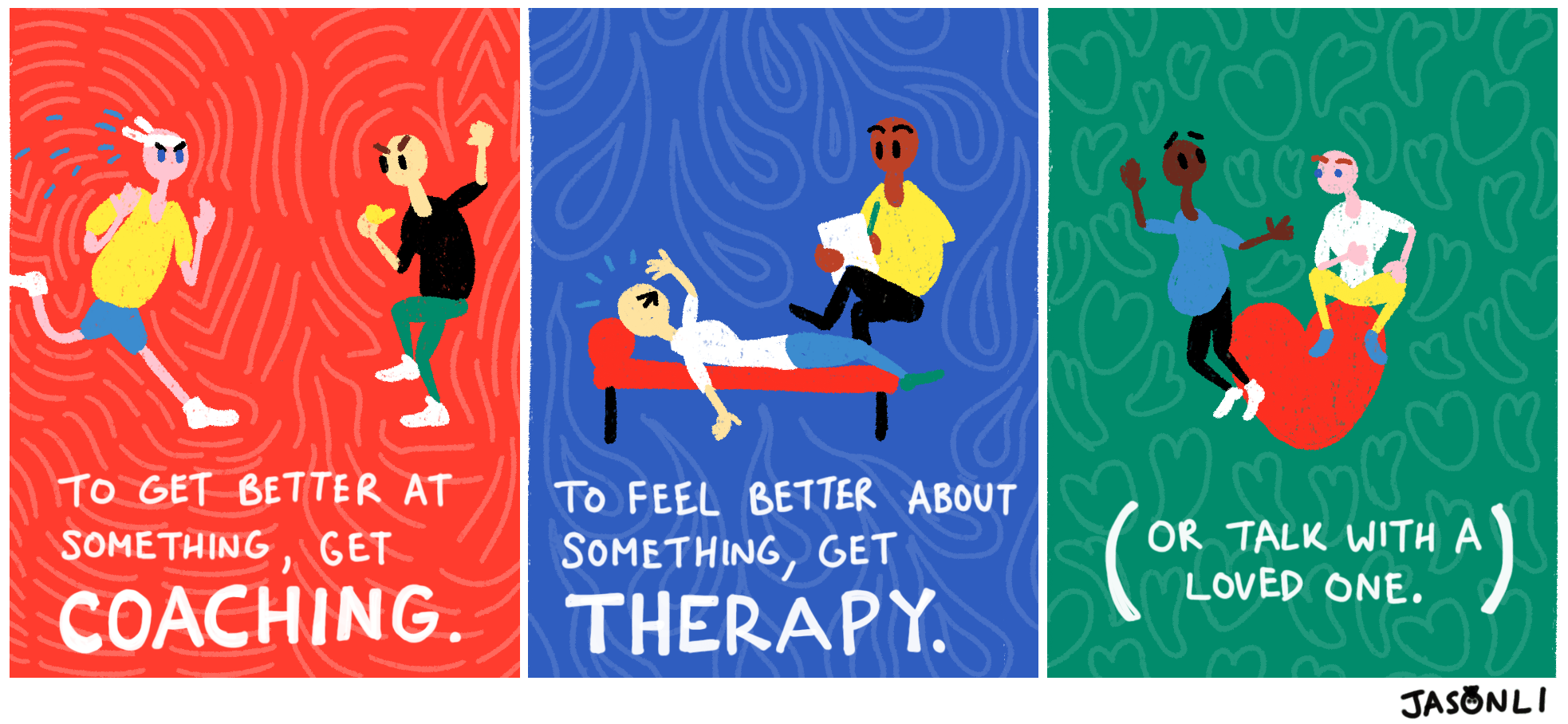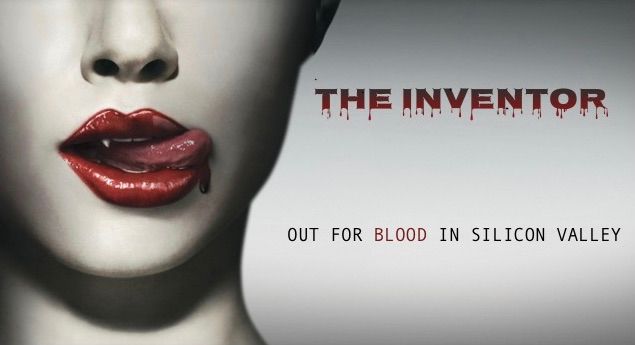Always Be Coaching: On Management #36

This time, a return to a topic I addressed in 2016, with a bit more nuance: coaching.
Trending: coaching, “democratized”
I recently awoke with a pithy insight that I’m holding in my mind, for now, as a hypothesis.
To get better at something, get coaching. To feel better about something, get therapy. (Or talk with a loved one.)

We’ve all seen surprising fails at work. Or maybe we’ve stumbled, ourselves.
- The “rockstar” hired to great fanfare, who leaves on a sour note.
- The newly-minted CS grad who can’t crack the social code.
- The go-getter with an elite degree who doesn’t know how to (fill in the blank.)
These problems are often solvable by coaching. And I don’t mean by hiring a coach.
When you want someone to get better at something — get better at managing them.
Coach them.
The Rockstar mastered the dynamics of another organization, not yours: you need to tell them how things work around here. The Programmer has never had a job. They need some hand-holding. The Ivy grad is waiting for some explicit direction. From you.
Coaching is context-relevant, task-relevant feedback.
Your CEO’s executive coach consults with stakeholders about their expectations, along with the CEO’s performance, leadership style, and more. The coach analyzes the input, and offers the CEO support enabling them to be more effective.
Good managers talk routinely with team members about their work. They know how team members interact with others. They use this information to help employees to improve their skills, performance and effectiveness.
Dear team leaders, when you share task-relevant feedback, and work action plans with your team members, you’re managing. And coaching.
Your 1:1 meetings are a platform for this work.
If you’re new to managing and think you can’t coach, I’d bet you’re wrong. If you’ve taught someone to do something, you’ve coached them.
If you don’t want to coach people, you probably shouldn’t be a manager right now.
Dear CEOs, execs, and investors, let’s talk briefly about “democratizing” coaching.
There’s a trending conversation about Coaching As A Service (lol, CaaS.) A way for everyone in an organization to get coaching.
CaaS has an idealistic vision: give all of your people access to experienced coaches.
Many founders are iterating on this vision. I just don’t see how CaaS adds value to an organization — or how it becomes a sustainable, scalable business.
For today, let’s assume away all questions about the coaches — their skills, processes, professionalism, and personal agendas. (This is a big assumption.)
Context matters. A lot. Let’s go back to the last failed executive hire, someone who didn’t “get” your organization.
CaaS coaches are not in your shop. They’re talking with individual employees for several hours, an hour at a time, over a period of time.
Can they “get” your organization?
"It all felt very low-stakes—like a conversation with a barber who happened to have two decades of experience in HR at a giant company."
The conversations described in the Quartz article sound ad hoc. More like a conversation one might have with a mentor.
The founder of one CaaS company spoke to me about a 4-session engagement process that was in the works; this would provide context and continuity. Better.
There’s another matter: the topics being discussed.
“We’re not here to solve the problems of an organization,” says Toby Hervey, Bravely’s co-founder and CEO. “We’re here to help employees start a conversation about what’s on their mind.”
Your team members’ concerns are a rich source of knowledge about your organization’s health. There are risks to outsourcing these conversations.
- Institutional knowledge leaks out of your organization
- You weaken your internal communications
- You may not hear about problems before it’s too late to respond
You can “democratize” coaching by being sure that your managers are having regular 1:1 meetings with their team members.
Every. Single. Team. Member.
Because people getting coaching will have an advantage. So coaching, unevenly distributed, can amplify inequity.
Also, when you make a strategic decision to hire executives who are proven people managers, you’ll level up the coaching your employees receive.
What’s a Heroine’s Journey?
You know the Hero’s Journey, right? A man goes out into the wilderness. He’s tested, and transformed by Divine wisdom. He returns with hard-won insight that will Save The World.
When he falls, there’s a redemption story.
Let’s take another minute on Theranos. (I’ve written a bit on this here, and here.) And I recently screened Alex Gibney’s documentary, The Inventor.
IMO John Carreyrou’s Theranos exposé Bad Blood was flawed by a claim that CEO Elizabeth Holmes held powerful older men in her “thrall.”
Strictly speaking, I’m not an expert in the literature of horror. That said, I’ve logged many, many hours on vampire stories.
The word “thrall” evokes swooning victims who are about to be devoured.
The Inventor is no Heroine’s Journey.

The creepy music. The swirling red fluid, dissolving into an image of Holmes’ face.
The freaky spattered and I assume simulated medical device.

Holmes’ unblinking eyes. Her wardrobe. The contents of her refrigerator.
Or, a refrigerator.
And maybe she was, uh, crazy?
This was real lunacy. I realized that there was something wrong with her mind.
- journalist Roger Parloff, in The Inventor: Out for Blood in Silicon Valley
Well, there you go.
We’ve been treated to journeys, and falls, of notable (male) Silicon Valley heroes. Men who presided over less-than-functional organizations. Some broke the law.
Some were responsible for demonstrable harms.
Will Holmes get a redemption story? Or does a Heroine’s Journey inevitably end on a glass cliff, with a mess so big that nobody’s willing to help clean it up?
Is this it?
O Magazine once did a feature about the creation of OPRAH.
Oprah, the person, starts off unmade-up, looking like any woman of a certain age who hasn’t had her morning coffee. It was unsparing. #respect
She’s visually transformed through the efforts of a large team of professionals.

This image from a Fortune article was viral on Twitter. It reminded me of Oprah’s journey to cover modeldom.

I celebrate the Rent the Runway team’s journey, and their victory.
The portrayal of the CEO Successing while projecting a Stunningly Beautiful Pregnancy*?
It seems like a Heroine’s Trap.
*Pro-tip: Ask someone who has been pregnant.
We’re in the worst reboot of The Hero’s Journey
Joseph Campbell’s name is synonymous with The Hero’s Journey.
Years ago I listened to Campbell in conversation with Bill Moyers in the PBS series, The Power of Myth, which is also a book. (library) (Indiebound)
It was actually recorded at George Lucas’ Skywalker Ranch. If I recall correctly, Moyers and Campbell note that Lucas designed Star Wars to be a Hero’s Journey.
The Hero’s Journey crosses cultures. It persists. It can be used to sell movies.
Or to sell a story.
Our Hero drops out of an elite university. Wanders into a wilderness of sterile lobbies and well-appointed conference rooms. Annointed by men in fleece vests, he returns with a large pile of money that will Change the World.
In this clip from The Power of Myth, Campbell’s not talking about scale as impact. Or about making an organizational mission into your own high adventure of the soul.
We are all co-creating the world, all the time. What will we make?
Also, Yoda is not a coach — he’s a spiritually advanced being. Don’t @ me.
On coaching
When Ashley Milne-Tyte approached me to talk about coaching on an episode of The Broad Experience, I was in.

Ashley explores this topic over two podcast episodes: The Coaching Cure, Part 1: The Coach, is here. She posts good links for further exploration at her website.
My April, 2016 newsletter also focused on coaching. (You can read it here.)
If you’re thinking about hiring a coach
…if you are thinking about engaging with somebody who calls themself a coach, they should be able to explain their process to you. They should be able to answer questions for you about what you are going to get out of it.
The coach should be able to tell you how you will spend time together, and what kind of work you will be doing during that time, and what kind of work you'll be doing in the off hours. And in the case of people who are being coached through their workplaces, there should be a transparent and clear idea of how the different stakeholders will be involved in the entire process…
Me, in The Broad Experience, Episode 139: The Coaching Cure, Part 2
Also, you should be able to talk to former clients who’ve agreed serve as references. The coaching engagement should have goals, and you should have an estimate of what the process will cost.
(I wrote a bit more about coaching here. And here: it’s not always useful. And here: you have to do the work.)
A question
How will you become a more effective coach for your team members?
Links
Speaking of coaching, pair these pieces:
IBM artificial intelligence can predict with 95% accuracy which workers are about to quit their jobs. IBM says it wants to use AI to identify career development opportunities that keep people from quitting (srsly?)
How will AI change your life? AI Now Institute founders Kate Crawford and Meredith Whittaker explain. A different perspective on AI-powered HR, and much more, via Kara Swisher at Recode Decode.
Severance was one of my favorite 2018 books, and not just because it was about the workplace and zombies. Working Through the Apocalypse: An Interview with Ling Ma in by Ryan Chapman at Longreads.
- Sorry to Bother You was one of my favorite 2018 movies, and not just because it was about the workplace and weird horse-human hybrids. Movie Review: Sorry to Bother You is a Modern (Labor) Love Story by Heylee Bernstein at On Labor.
Kickstarter staff begin unionizing as game industry debates its merits, by Ana Valens at Gamedaily.biz.
- When the Hero is the Problem by Rebecca Solnit at Literary Hub. (h/t Anne Galloway, via Christina Xu.)
- Pat Summitt: "I am very demanding" 2016 obituary for legendary basketball coach Pat Summit.
Thank you so much for reading! Thank you, Jason Li, for this editions’s illustration. (Here’s his last one.)
I usually like to send the newsletter out on Sunday, but I have to admit that the road trip I took with two young relatives kicked my behind here and back…so I’ll be interested to see what happens when I send it on Monday.
Many thanks to Supporting Members, who pay to receive the newsletter. The next Office Hours is April 18, there are still open spots, and Supporting Members can find the sign-up link here.
Best,
P.S. ICYMI, the last few issues:
- I Kind of Want A Revolution: Members Only #9
- Ask (Better) Questions: On Management #35
- The Women's March – A Brief, Impromptu Members Only #8.5
The rest of the archive is here.
What’s your mission?
It’s my hypothesis that the relentless insistence that we own an organizational mission — body, mind, and soul — leads to burnout. Changing the world, indeed.
As an antidote, I’m rolling out a guided exploration of your own mission.
We’ll start around May 15, it will last 4 weeks, and you’ll be asked to respond to questions/writing prompts. (You may keep them to yourself, or share them.)
There are 10 spots, and sign up is pretty manual: reply to this note and I’ll send you more info. There will be a small fee; Supporting Members can join for free.
I’m gathering names for my book giveaway
My plan was to gather one hundred names, and then give away a book I’m reading.
If you live in the US, you’ll receive an actual book from me in the mail, an artifact that exists in meatspace. International folks will get an ebook version.
Send me a note to join the list!

Pam, another woman business owner, is probably my favorite True Blood vampire.




